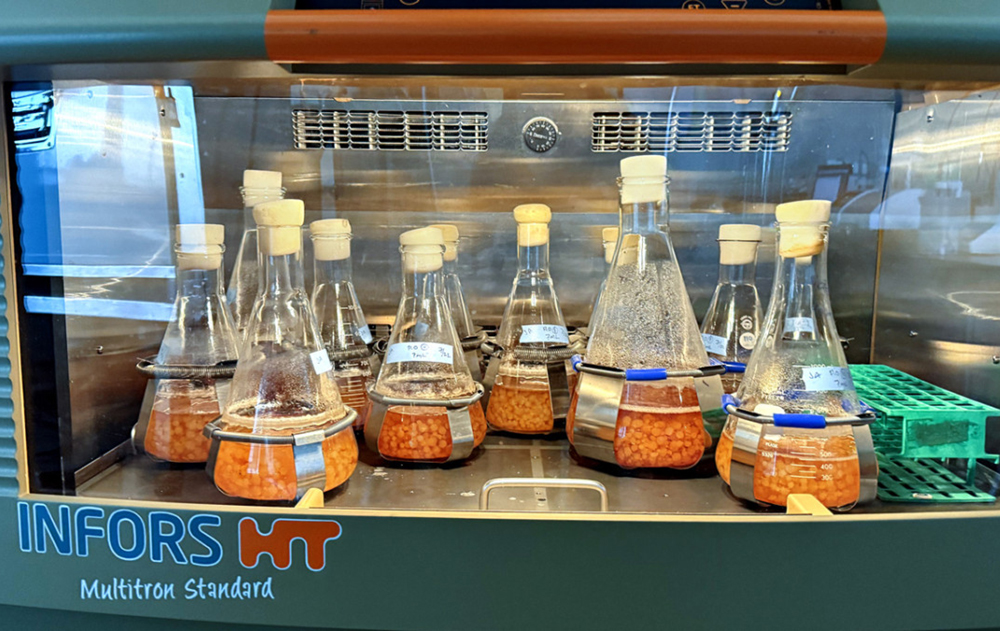

Plant-based meats don’t belong in the ‘junk food’ bin, say GFI and PAN
A new briefing from the Good Food Institute Europe (GFI Europe) and the Physicians Association for Nutrition (PAN) is challenging the assumption that plant-based meat alternatives (PBMAs) should be treated as inherently unhealthy simply because they are classified as ultra-processed foods (UPFs). Authored by Amy Williams, Dr Johanneke Tummers and Dr Roberta Alessandrini, the document calls for a more nuanced approach to food classification – one that considers the nutritional role PBMAs can play in healthier and more sustainable diets.
The authors acknowledge that PBMAs are often labeled as UPFs under the NOVA classification system. But they argue that lumping them together with items like cakes, sugary drinks and snacks distorts the conversation. “NOVA is useful for identifying patterns of dietary intake at the population level”, the report states, “but it does not provide information about the specific nutritional composition or health impact of individual foods”.
Speaking during the May 2025 webinar hosted by Protein Production Technology International, Amy Williams, Nutrition Lead at GFI Europe, said part of the challenge is the complexity of the issue itself. “This is an incredibly complex and nuanced topic – there’s a lot to unpack, which I think often leads to people talking past each other,” she said. “It’s really important to take a step back and consider the full picture: to look at the arguments in their entirety, examine where we have strong evidence, and acknowledge where more evidence is still needed. That’s really the crux of the issue.”
Williams pointed to two central arguments often missed in the public conversation. First, PBMAs typically have a very different nutritional profile from most other foods in the UPF category. Second, they usually replace processed meats – foods that are linked to increased health risks regardless of their processing status.
“To go back to the question of what the research actually tells us – it’s important to remember that the NOVA system is fundamentally an epidemiological framework,” she said. “It was developed to study how diseases emerge over time by analyzing food diary data and health outcomes in large populations.” Williams explained that this type of research shows associations between high UPF intake and negative health outcomes, but the largest contributors to UPF intake are typically products like pastries, fizzy drinks and processed meat – not plant-based meat, which still makes up less than 0.5% of daily calories in most cohort data.
“When we look at the actual studies, it’s clear that the foods most strongly represented in the UPF category are also those most commonly associated with poor nutritional profiles,” she said. “That matters, because the health effects may stem more from nutrient content – like high levels of sugar, saturated fat and salt – than from processing alone.”
The report also urges public health authorities to distinguish between different kinds of processing. “Boiling an egg can improve nutrient bioavailability, while boiling vegetables might reduce vitamin content,” said Williams. “So the effect of processing depends on the food and the method – it’s not inherently good or bad.”
The authors argue that recent randomized controlled trials provide a clearer picture of how PBMAs function in the diet. A systematic review published in late 2024 found consistent reductions in LDL cholesterol and modest weight loss among people with overweight when conventional meat was replaced with plant-based alternatives. These results align with what one would expect from foods that are typically lower in saturated fat and calories, and higher in fiber.
“To me, that suggests that for plant-based meat, nutritional composition may be a more important factor than processing,” Williams said. “But of course, we still need more research. It’s a very complex area that’s difficult to summarize quickly – and really deserves more attention. Honestly, it could warrant a dedicated webinar of its own.”
The GFI–PAN resource recommends that dietary guidelines move away from using UPF classification as a shorthand for healthiness. Instead, it calls for policies that evaluate products based on nutrient content, intended use, and overall contribution to dietary transitions. It warns that blanket negative messaging around UPFs risks discouraging the adoption of foods that can play a beneficial role in shifting diets away from animal products.
The authors also stress that while PBMAs are not a panacea, they can be a valuable part of building more sustainable food systems. “PBMAs are not a silver bullet,” the document concludes, “but they can be a valuable tool in the transition towards more healthy, sustainable and equitable food systems.”
Importantly, the report does not give PBMAs a free pass. It acknowledges the category’s variability and the need for continued reformulation to improve nutritional profiles. But it also makes clear that scientific and regulatory decisions should be based on evidence – not assumptions tied to broad classification systems.
As policymakers across Europe and beyond explore how to incorporate food processing into national nutrition frameworks, the authors argue that now is the time to avoid one-size-fits-all thinking. “Comparing PBMAs to confectionery or soft drinks under the same label can obscure key nutritional distinctions,” they write.
With consumer interest in alternative proteins rising, and public discourse around UPFs growing more polarized, this briefing arrives at a critical moment. Its central message is clear: food policy should reflect the science, not the stereotypes.
If you have any questions or would like to get in touch with us, please email info@futureofproteinproduction.com

.png)






